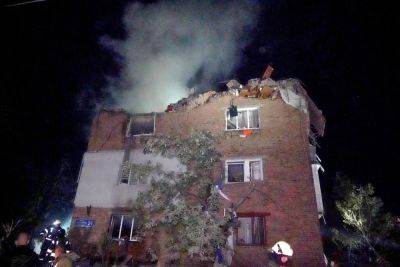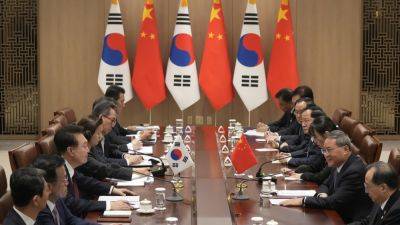Japan, US move ahead in co-developing hypersonic weapons interceptor as regional threats grow
Japan and the United States on Wednesday signed an arrangement to jointly develop a new type of missile defense system as the allies seek to defend against the growing threat of hypersonic weapons, which are possessed by China and Russia and being tested by North Korea.
The project was initially agreed between Japan’s Prime Minister Fumio Kishida and U.S. President Joe Biden at their summit last August and reaffirmed between the leaders during Kishida's April visit to Washington. The Glide Sphere Interceptor is planned for deployment by the mid-2030s.
Wednesday’s agreement determines the allocation of responsibility and decision-making process, a first major step in the project, Japanese defense ministry officials said. They hope to decide on Japanese contractors and start the development process by March 2025.
Hypersonic weapons are designed to exceed Mach 5, or five times the speed of sound, posing a threat to regional missile-defense systems with their speed and maneuverability. Developing interceptors of them is a challenge.
Japan's defense ministry called it a “pressing issue” and noted that hypersonic weapons in the region have dramatically improved in recent years.
Under the arrangement, Japan is responsible for developing a part at the interceptor's tip that separates in space to destroy the incoming warhead, as well as its rocket motors, officials said.
Japan has earmarked 75.7 billion yen ($490 million) for initial development and testing of the interceptor, according to the defense ministry.
The cost includes making components for the two companies, Raytheon Technologies and Northrop Grumman, that are developing the weapon in a competition led by the U.S. Missile Defense Agency. One will be chosen for the







